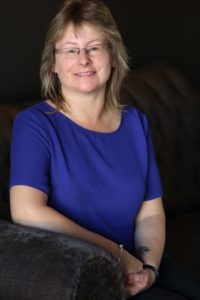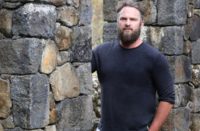 For Auckland-based not-for-profit charitable trust, Sowers Trust, ‘sowing seeds of hope’ is not only their tagline, but it’s what they truly aim to achieve. Tackling the perceived stereotypes of a comfortable community, Sowers helps at-risk youth and people affected by family violence. Their goal is to empower, equip and mentor youth and families by building therapeutic relationships. Business to Business spoke to trust manager, Jenny Naley, about her role.
For Auckland-based not-for-profit charitable trust, Sowers Trust, ‘sowing seeds of hope’ is not only their tagline, but it’s what they truly aim to achieve. Tackling the perceived stereotypes of a comfortable community, Sowers helps at-risk youth and people affected by family violence. Their goal is to empower, equip and mentor youth and families by building therapeutic relationships. Business to Business spoke to trust manager, Jenny Naley, about her role.
What training have you had and how relevant is it to what you are doing at the charity coalface, day to day?
I am a qualified social worker and registered with the Social Work Registration Board. Staff members, including myself, have internal and external conversations with another professional around the way we work to ensure we are following best practice guidelines. This ensures there is accountability and that we are all working in a way that is safe for others and for ourselves. I have on-going training which assists with both my social work and role as manager. Examples of other training is around appropriate supports for people affected by domestic violence (safety planning etc), funding workshops and supervision training.
What is the most rewarding and/or frustrating part of your job?
Ensuring families and young people have equal opportunities to develop and grow is incredibly important to me. I am passionate about finding ways for them to do that. I love creating relationships with people that build on strengths, enabling each person to reach their potential. It is so rewarding seeing the positive changes that take place, not only over the time that we are supporting a family or individual, but over the years that follow.
From a team perspective, I feel privileged to be working alongside people that share an amazing vision of hope and transformation for others. I am honoured to be in a position that encourages and witnesses the team’s growth and development.
My biggest frustration is around funding. It is really hard to plan effectively and take a sustainable approach to what we do when living month to month income-wise. Applying for funding and fundraising events, not only take us away from our core business but there are no guarantees we will receive all, or even any, of what we apply for.
What has been your biggest achievement/legacy over the last nine years with the Sowers Trust?
I believe it takes a team for an organisation to thrive and that each person has a valuable role to play. I think I have been (alongside others) a key contributor to the development and growth of Sowers and I was part of the team which developed our practice to a level that enabled us to gain Ministry of Social Development contracts.
Obtaining my degree, and subsequent social work registration while working full time, was huge for me. It provided the opportunity to move into my current role. I’m really proud to be a part of such an incredible team and what we’ve accomplished such as developing an on-going review and evaluation process enabling us to capture outcomes more effectively, and introducing new programmes to fill gaps/meet needs. These include Triple P Parenting and the Friends Programmes which assist children and youth to develop life skills to effectively cope with difficult and/or anxiety-provoking situations.
How has what you see on a daily basis, changed the dynamics of your own family life?
It has helped me appreciate what I have and my family more. It has also helped me recognise what is important to me and to appreciate differences and value the richness that diversity brings.
What is the biggest impediment you face when dealing with the escalating cases of family violence?
Family violence is definitely on the increase. It is huge. Family violence doesn’t discriminate; it takes place in families in all income brackets. It can be a symptom of other things going on in the home. We never know what someone is going through or what they are struggling with and the more we can refrain from judgment and assumptions, the better.
Desensitisation is on the increase and supported by what we read and see in the media. When something isn’t happening to us, or someone we know, it is easy to think that it is not happening at all.
Is family violence more common amongst lower socioeconomic groups or is it relatively even across the board?
I think that suggesting poverty breeds violence is a narrow focused perspective. In my experience family violence does not discriminate and occurs in all socio-economic groups. However, poverty can increase the occurrence and severity of violence, making leaving a situation more difficult to navigate.
Are such issues as drug and alcohol use, problem gambling or mental illness often instigators of family violence? If so, what work (if any) does Sowers do to address these underlying causes?
Based on reports that I see, alcohol plays a huge part in family violence occurrence. We are more vulnerable after a few drinks and less likely to make the same decisions or choices we would if we were sober (another generalisation). Of course, other things can play a part too but each situation is different. When we support families, we look at the bigger picture of how things are for a family so the support we provide ensures that a family is well connected into their community and in a position to access the support needed to change their situation.
How effective are such campaigns as ‘It’s not okay’ in helping curb family violence? Could the money spent on these be better employed elsewhere?
It is always good to review programmes/campaigns from time to time to ensure desired outcomes are being met. With reference to the “It’s not okay” campaign, the message has been brought home loud and clear by exposing the nature of violence. Social media has played a part in what is a new and constantly developing area. The viral nature of social media means that each person who sees the advert or posts can spread the news so information can reach a large number of people in a short time.
Who should be the first point of contact when family violence occurs?
Anyone with immediate safety concerns should call 111 for the Police. Ask a neighbour or friend to call if you can’t make the call. If you are not in immediate danger but would like to talk with someone about your situation then contact refuge (0800REFUGE) or another local organisation such as ours to have a confidential conversation. Refuge has safe houses so, if someone needs to get out urgently, it is the best group to call.
If you were Minister of Social Development for a day what would you do and why?
Key policy changes need to impact positively on low income families which make up the greatest number of our working age population. It makes sense that if they are better off then we all are. NZ has a habit of putting the ambulance at the bottom of the cliff instead of a fence at the top. Early intervention, a living wage and a more effective education system should be a key focus for our future.
If you could invite any two people (living or dead) to dinner who would you ask and why?
Martin Luther King and Rosa Parks. It would be great to get their perspective on life and further understand their experiences and what shaped their thinking. To learn from their obvious strength of character, which enabled them, in spite of challenges, to stand up for what they believed in, would be empowering.



